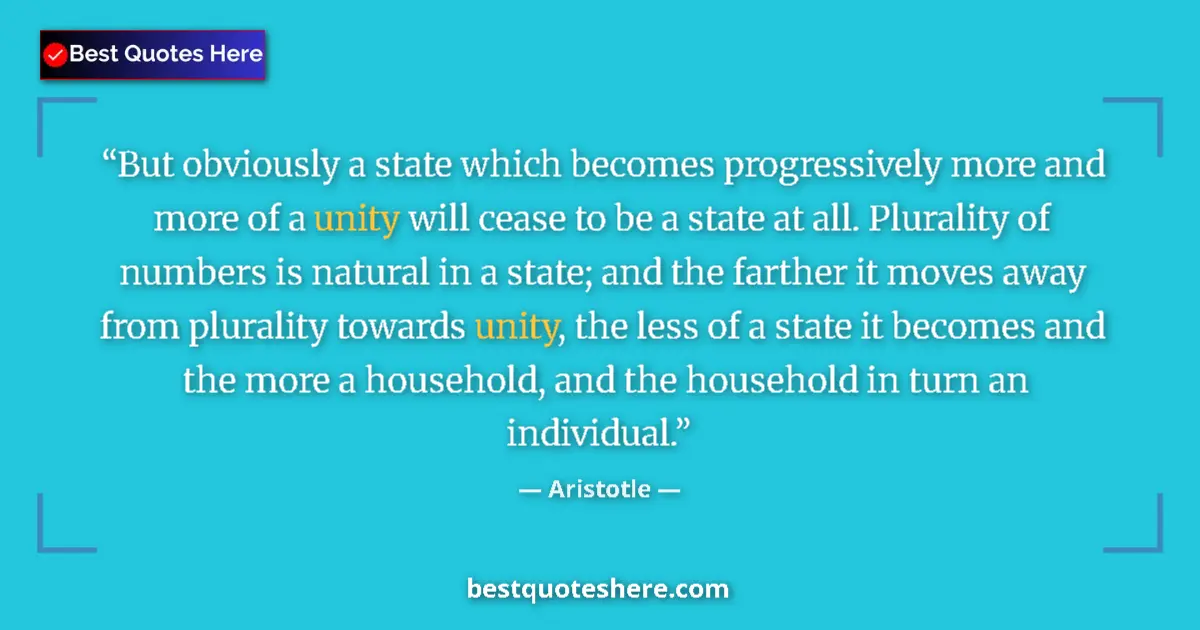"But obviously a state which becomes progressively..." - Quote by Aristotle
But obviously a state which becomes progressively more and more of a unity will cease to be a state at all. Plurality of numbers is natural in a state; and the farther it moves away from plurality towards unity, the less of a state it becomes and the more a household, and the household in turn an individual.

More by Aristotle
“In the human species at all events there is a great diversity of pleasures. The same things delight some men and annoy others, and things painful and disgusting to some are pleasant and attractive to others.”
“In a word, acts of any kind produce habits or characters of the same kind. Hence we ought to make sure that our acts are of a certain kind; for the resulting character varies as they vary. It makes no small difference, therefore, whether a man be trained in his youth up in this way or that, but a great difference, or rather all the difference.”
“For as the eyes of bats are to the blaze of day, so is the reason in our soul to the things which are by nature most evident of all.”
More on Society
“Prosperity is something the businessmen created for politicians to take credit for”
“Fine art is the subtlest, the most seductive, the most effective instrument of moral propaganda in the world, excepting only the example of personal conduct; and I waive even this exception in favor of the art of the stage, because it works by exhibiting examples of personal conduct made intelligible and moving to crowds of unobservant unreflecting people to whom real life means nothing.”
“There may be some doubt as to who are the best people to have charge of children, but there can be no doubt that parents are the worst.”
More on Government
“History has tried hard to teach us that we can't have good government under politicians. Now, to go and stick one at the very head of the government couldn't be wise.”
“Government [is] an illusion the governed should not encourage.”
“The aggregate happiness of the society, which is best promoted by the practice of a virtuous policy, is, or ought to be, the end of all government . . . .”